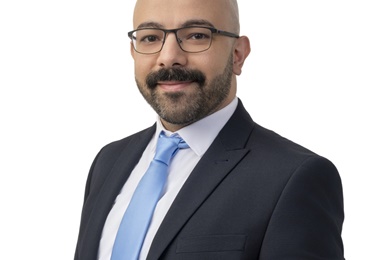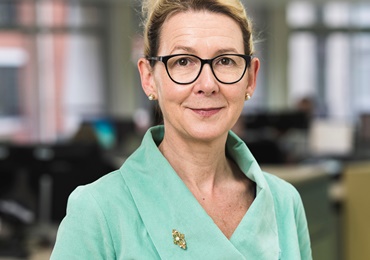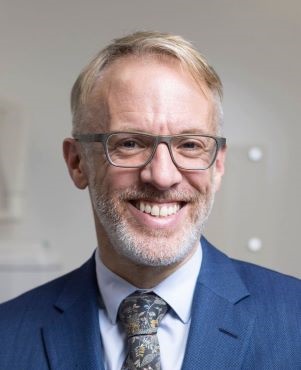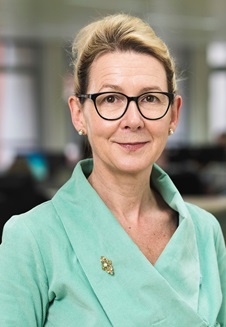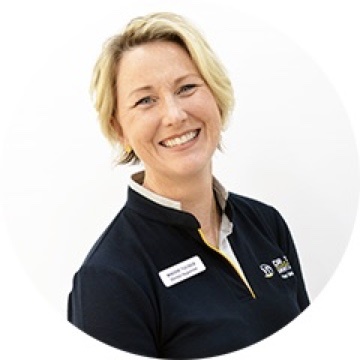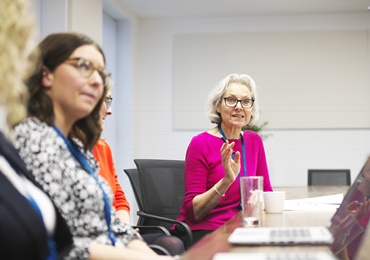GDC in lockdown – changing the way we work
As levels of dental activity have reduced, we have been asked why the GDC’s activities have not reduced in parallel, leading to a reduction in our costs and thus the amount we need to collect in registration fees. There is a simple answer to that question, which is that we are a statutory body and we cannot stop our activities. We are obliged to continue to maintain the register and protect the public. And unlike much of the activity we regulate, we are in the fortunate position that very little of our work depends on physical contact, so we have been able to find ways of continuing to operate throughout the period of lockdown.
There is also a longer and I hope more interesting answer, which is the story of the impact of COVID-19 on the GDC. That impact has been much less extreme for us than for people and organisations directly providing patient care, but it has still been very substantial. The GDC is working very differently today from the way we were working in early March.
Although we had already been preparing contingency plans, the big changes for us started on Monday 16 March, when a suspected case of COVID-19 was identified in our London office. As a precautionary measure to protect both GDC staff and those attending hearings, the building was closed and then deep cleaned. Some activity resumed later that week – in particular in an attempt to complete fitness to practise hearings already underway – but the direction of travel was clear and we concentrated on planning how we would operate if we had to close for the longer term. A few days later, the Government announced the lockdown, including the requirement for people to work from home wherever possible. Much, but not all, of our work can be done from home, and most GDC staff have been working remotely ever since.
We are a statutory body and we cannot stop our activities. We are obliged to continue to maintain the register and protect the public. But to meet our statutory duties, day to day work had to be continued and that left us with some big challenges which we needed to solve quickly. The telephone system used by our small contact centre team hadn’t been designed for remote access and our IT team did a great job reconfiguring it and getting hold of the additional equipment needed to make it possible for that group to work from home. Some of our processes – particularly for registration – still involve paper documentation, so we had to develop safe ways of bringing small groups of staff into our Birmingham office to open and scan incoming post, making it available for processing by other members of the team working at home.
Perhaps the biggest challenge was on fitness to practise hearings. It’s not just that the hearings themselves take place in a fairly confined space, but that all the participants have to travel to get there, and many need hotels and restaurants close by. So it rapidly became clear that we needed to take a completely different approach, developing ways of being able to hold hearings both safely and fairly to all participants, but in a way that didn’t depend on their coming together in a room. From a standing start, we held our first fully virtual hearing on 26 March for an interim order, the procedure used when there is an immediate risk to patient safety.
Alongside all that, we had the same challenges that every office-based organisation has had in converting rapidly to different ways of working. Members of staff had to find ways of coping with often imperfect working conditions, and of balancing work and caring responsibilities. For the organisation as a whole, we had to find substitutes for every aspect of our working which assumed that groups of us could be in the same room, including formal meetings of the Council and its committees. I am impressed by – and very proud of – the resilience, adaptability and commitment our staff have shown in making all that work.
Meanwhile, our day to day work didn’t go away, and in some areas got suddenly more demanding. The number of new registrations in April and May has been running at a lower level than in the same months of 2019 – but not dramatically lower. There has been a sharp fall in the number of new fitness to practise concerns being reported, but that doesn’t have an immediate impact on the amount of work outstanding. What it does mean is that we have been able to use more of our capacity to move cases forward, which should mean that we will be able to reach decisions on more cases than expected in the next few months. Our Education team had to turn away from its programme of inspection and instead work closely with dental schools and other qualification providers to ensure that people reaching the end of their courses could be fairly assessed and have the evidence they needed to progress smoothly through the registration processes. Our Communications team has redoubled its efforts to make sure that we are clear as we can be about the impact of the pandemic on regulation and professional practice and that we can provide guidance about some of the new challenges which have arisen. And so on, across the whole of the GDC.
We are acutely conscious that our costs are ultimately met by the fees registrants are obliged to pay. Like any public body we must achieve – and demonstrate that we have achieved – value for money in everything we do. We will continue to keep scrutinising our workload as the wider situation develops and we have also been reviewing our plans for 2020, reducing or deferring activity where we can. We will make savings in areas such as travel costs, staff will not receive a pay rise this year, and we have frozen all but essential new recruitment. In areas of work where there is scope for reduced activity, we have also made use of the government’s furlough scheme to cut our costs further.
But we still face major uncertainties. We have some control over our expenditure – though most of what we do is required of us by law so, as I have said, we don’t have the option to stop. But one of the big factors which drives our income is the number of dental professionals who register each year. This year, that is much more uncertain than normal, because we don’t know to what extent the impact of the pandemic will result in some dentists and dental care professionals choosing not to renew their registration. In these circumstances, we need to create some financial headroom in case our income drops. That’s part of the reason why the Council decided not to reduce the level of the ARF for the current year. We also set up a project to look at the feasibility of reducing the immediate impact of the ARF by introducing an emergency payment by instalment scheme. Council decided not to go ahead because doing so would have introduced extra costs, which would have had to have been paid by dental professionals, as a whole, and would have further added to the uncertainty of our income.
I know that will be of little comfort to those facing very real financial pressures as a result of the need to suspend so much dental activity. The best solution to these pressures – and the best way of providing much needed dental care for patients – is to start the process of resuming dental treatment. We want to see dental practices and their supporting labs reopen and we are working closely with a wide group of professional, regulatory and representative bodies covering every aspect of dentistry to make that possible.
 eGDC
eGDC